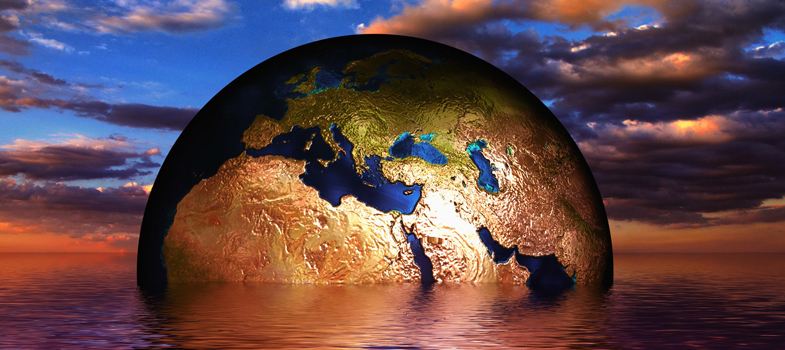9.3 So why are some scientists sceptical about climate change?
The emphasis on ‘why’ makes this a more difficult question to answer, as it requires some knowledge of people's motives. It involves some insight to the social construction of science, vested interests, strategies and tactics to influence policy, different world views, values and beliefs and something about public understanding of science, to name but a few factors.
The scientific community is just that – a community. We are not all the same. There are academic scientists, government, business/industry, NGOs, independent consultants and so on. Most people are going to work to work in areas where their professional role doesn't conflict with their personal beliefs.
There are many different scientific views – sometimes on the detail, sometimes leading to paradigm shifts. Dispute, debate and discussion are essential for science to thrive and survive.
All of that challenges the notion of ‘objectivity’ in science – at least in the commonly held notion of there being some single dispassionate position that is somehow insulated from an individual's life history, social context, their place in the scientific community and where the science is going.
A cynical view might be that independence and objectivity stops where the pay cheque starts. You don't want to bite the hand that feeds you. Where possible it's certainly worth checking who supports different viewpoints (e.g. ExxonMobil are often connected to climate change sceptic views – they may have a vested interest in doing so).
Some people are sceptics because they don't agree with the actual or proposed response to climate change. For example, if the crux is rapid and steep cuts in emissions of greenhouse gases, some of the proposed solutions challenge our lifestyles and the way we organise our society, how we express ourselves through the goods and services we purchase, sense of self, our ‘shared values’ (whatever they are) and so on. One response to that is to provide contrary views about the nature of the problem (i.e. that there isn't one). An alternative response might be to accept the evidence and find alternative solutions.
Some scientists are ‘sceptical’ not because they disagree with the science of climate change, but because they react against the hyperbole and alarmist nature of media coverage, which can then distort the policy response to the issue.
RealClimate discusses various aspects of climate change scepticism.
SourceWatch exposes the actors, factors and issues behind the climate sceptics.
The Tyndall Centre has a briefing note entitled ‘“Dangerous claims”: is the way we perceive climate change leading to a precautionary approach or an irrational response?’
9.2 Why the fuss about Channel 4's Great Global Warming Swindle?
